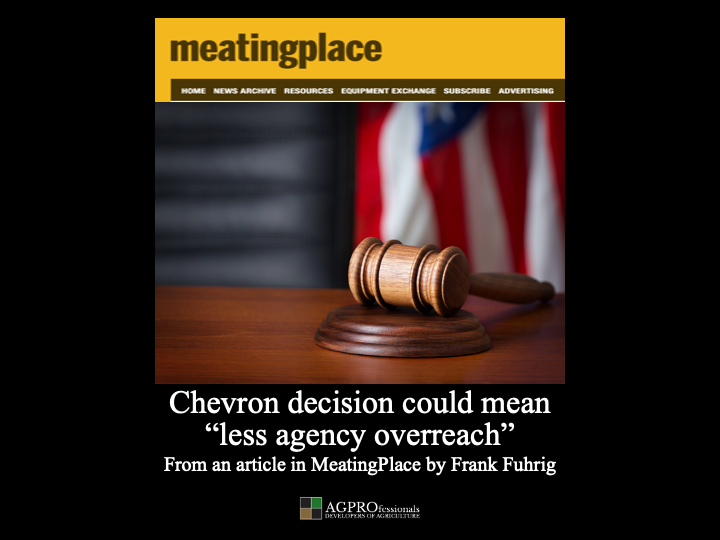From an article in MeatingPlace by Frank Fuhrig on 7/19/2024
Widespread expectations for a deluge of lawsuits challenging regulations in the wake of last month’s Supreme Court invalidation of “Chevron deference” for federal agencies could be premature, according to former US labor secretary Eugene Scalia.
In an interview on the American Banker Podcast, Scalia went against conventional wisdom about the June 28 decision in Loper Bright Enterprises v. Raimondo, which overturned the 40-year Chevron doctrine granting administrative agencies wide latitude to interpret vaguely written laws.
“I actually see a scenario where we get less litigation because we get less agency overreach,” said Scalia, an expert in regulatory and administrative law who was labor secretary from September 2019-January 2021. “Agencies, as I've said, have felt emboldened. They've thought, ‘Hey, when in doubt I win.’ And reversing Chevron means that when in doubt, [a federal agency] may well lose. So I think if agencies overreach less, if they're more careful to stay in their lane, you may get less litigation.”
Scalia, who was previously the Labor Department’s chief legal officer from 2002–03, helps lead the Administrative Law and Regulatory Practice Group of Washington law firm Gibson Dunn.
He said that the Loper Bright decision overruling Chevron deference is an “important reflection of a much broader trend, which is that courts today are more carefully scrutinizing how agencies exercise their authority and how far they take it. And for that reason — sure, because Chevron's gone, but more importantly, because there's this broader trend — I think all regulators are wise to be more careful than they've been in recent years, to make sure they're acting within the authority that Congress gave them, and to make sure that they're giving thoughtful consideration to what the public tells them their concerns are.”
Welcomed by agriculture industry groups, the Loper Bright opinion by a 6-2 Supreme Court majority is a landmark shift in administrative law, impacting the environment, healthcare and consumer protection with broad implications for regulation of agriculture, food processing and the meat industry. In particular, regulatory wrangling over salmonella control in poultry and enforcement of the Packers and Stockyards Act could be directly affected.

